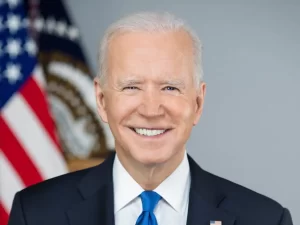 The US intelligence community has expressed doubts about the viability of Israeli Prime Minister Benjamin Netanyahu as a leader.
The US intelligence community has expressed doubts about the viability of Israeli Prime Minister Benjamin Netanyahu as a leader.
The report suggests that Netanyahu’s ability to govern is in jeopardy, citing a deepening public distrust and the potential for large-scale protests calling for his resignation and new elections. The intelligence assessment also raises the possibility of a different, more moderate government coming into power.
Netanyahu has faced significant criticism within Israel for his government’s failure to predict or prevent the October 7 attack, which resulted in the loss of 1,200 Israeli lives and the taking of 240 hostages by the terror group Hamas. Public opinion polls indicate that many Israelis question the effectiveness of Netanyahu’s prolonged military offensive, now in its fifth month, which has resulted in the destruction of Gaza and the deaths of tens of thousands of people, in the effort to recover the hostages.
While the Israeli population broadly supports the destruction of Hamas, the intelligence report highlights the challenges Netanyahu may face politically. This assessment presents a stark contrast to the once-favorable view President Joe Biden held of Netanyahu. The strained relationship between the two leaders has become increasingly public, particularly regarding the civilian toll in Gaza.
The Biden administration has been urging Israel to allow more aid into the Palestinian enclave as reports of civilian casualties, starvation, and disease continue to mount. In a recent interview, President Biden criticized Netanyahu, claiming that his actions are harming Israel rather than helping it. Netanyahu responded in a separate interview, refuting Biden’s suggestion that his policies defy the wishes of the majority of Israelis and asserting that they are in Israel’s best interests.
The US intelligence report also cautions that Israel may face ongoing challenges in defeating Hamas militarily. It emphasizes the difficulty of neutralizing Hamas’s underground infrastructure, which enables insurgents to hide, regroup, and surprise Israeli forces. This assessment aligns with warnings from experts and military analysts who have expressed concerns that Israel’s aggressive bombing campaign may serve to inspire future generations of terrorist actors.
Furthermore, the report highlights the increased threat of a terror attack within the United States. FBI Director Chris Wray testified before the Senate Intelligence Committee, stating that the threat level from terrorism has reached an unprecedented level since the October 7 attack. Wray emphasized the elevated risks posed by homegrown violent extremists, jihadist-inspired extremists, domestic violent extremists, foreign terrorist organizations, and state-sponsored terrorist organizations.
The Annual Threat Assessment serves as a crucial platform for the intelligence community to communicate its perspective on national security threats to Congressional leaders. While typically focused on security matters, the hearing deviated into political territory as Republican lawmakers pressed intelligence officials on security issues related to the US southern border. In the final moments of the hearing, a brief exchange between the panel’s top Democrat, Sen. Mark Warner, and Republican Sen. Jim Risch alluded to the politicization of the proceedings.
Additionally, during the committee hearing, Director of National Intelligence Avril Haines and CIA Director Bill Burns issued stark warnings about the situation in Ukraine. They expressed concerns that Russia has gained the upper hand, leading Ukraine to ration ammunition and potentially lose significant ground in 2024. The report indicates that additional assistance from the US is needed for Ukraine to regain the offensive initiative. It also sheds light on China’s increased support to Russia in the conflict, including economic and security assistance through the provision of dual-use materials and components for weapons.
Trade between China and Russia has been on the rise since the beginning of the war, with both countries benefiting from the relationship. Russia offers China cheaper energy prices and greater access to the Arctic, while China has significantly increased its export of goods with potential military applications to Russia.

